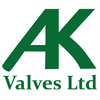Have you ever wondered how a check valve, also known as a non-return valve, works in a fluid system? Let's dive into the world of check valves and explore their importance in various industries.
What is a Check Valve?
A check valve is a mechanical device that allows fluid to flow in one direction only. It prevents backflow, ensuring that the fluid moves in the desired direction. Check valves are crucial in maintaining the efficiency and safety of pipelines, pumps, and other fluid systems.
How Does a Check Valve Work?
Check valves operate based on the principle of pressure differentials. When the pressure on the inlet side is higher than the outlet side, the valve opens, allowing fluid to flow. However, when the pressure on the outlet side exceeds the inlet side, the valve closes, preventing backflow.
Where are Check Valves Used?
Check valves are used in a wide range of industries, including oil and gas, water treatment, HVAC systems, and manufacturing. They play a critical role in preventing damage to equipment, ensuring the safety of operations, and maintaining the efficiency of fluid systems.
Why Choose a Non-Return Valve?
Non-return valves offer several advantages, including reducing the risk of contamination, preventing reverse flow, and minimizing pressure loss. By choosing a high-quality non-return valve, you can improve the performance and reliability of your fluid system.
Understanding the check valve, also known as a non-return valve, is essential for anyone working with fluid systems. By grasping the principles of check valves and their applications, you can make informed decisions to enhance the efficiency and safety of your operations.


